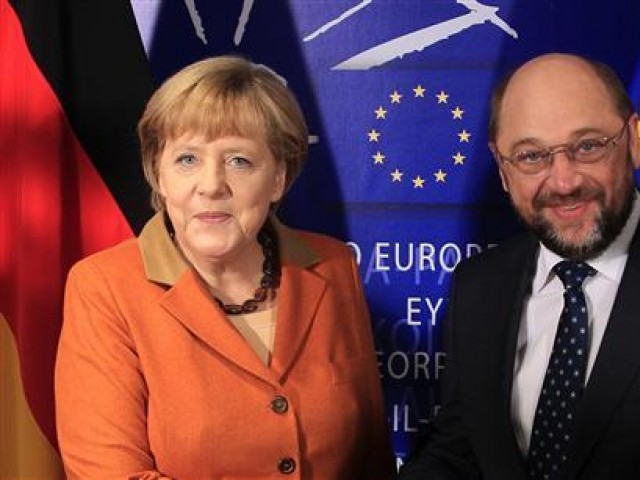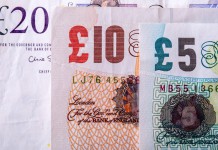To return to “Lead Europe”
 Angela Merkel the German Chancellor yesterday agreed the dark that it seems no one really wanted, sealing a Grand coalition between her ruling CDU/CSU alliance and the SPD. The agreement gave the foreign and finance ministers to the SPD and led to comments from members of Mrs Merkel’s party that she had given away too much to remain as Chancellor.
Angela Merkel the German Chancellor yesterday agreed the dark that it seems no one really wanted, sealing a Grand coalition between her ruling CDU/CSU alliance and the SPD. The agreement gave the foreign and finance ministers to the SPD and led to comments from members of Mrs Merkel’s party that she had given away too much to remain as Chancellor.
Mrs Merkle’s SPD partner Martin Schulz a former EU Commission President and staunch pro-European said the new grand coalition would signify a “fundamental change of direction in Europe”. “With this agreement, Germany will return to an active and leading role in the EU.”
The reaction of the common currency to this news is hard to judge since it is still caught up in the storm surrounding the corrections taking place in equity markets.
Mario Draghi will have been relieved that he chose at the recent ECB meeting to ignore calls for the tapering of the Asset Purchase Scheme since the Euro has fallen subsequently and any such announcement will have something of a diluted effect.
The single currency fell to 1.2245 breaking the support at 1.2280 and now looks set for a test of 1.2000 as the dollar index continues to recover from multi-year lows.
Brexit to hit parts of UK very hard.
The south of England and London are likely to be somewhat shielded from the effect of Brexit as unemployment remains at reasonable levels and house prices continue to rise even if that is at a slower pace.
However, the story will be vastly different in the North East of England and Northern Ireland.
In the industrial wasteland of the North East once the home of coal mining and steel making, Brexit could bring a 15% downturn in activity in an already deprived area.
A similar story in Northern Ireland will be created by uncertainty over the border question although with their toehold on power the Northern Irish MP’s can at least draw investment from a Government clinging to power.
Sterling continues to fall, also caught in the storm created by the equity correction but also badly hit by Brexit reports. A survey conducted by Reuters yesterday showed that 59 of 60 analysts polled saw the pound weaker in a month’s time than it is today. It closed yesterday at 1.3848 and the 1.4000 level is starting to disappear from the “rear view mirror”
Rate view crucial as Brexit “choices” diminish.
The Monetary Policy Committee of the Bank of England meets today, and the Bank of England also releases its Quarterly Inflation Report. Both events are sure to influence the pound.
BoE Governor Mark Carney was upbeat about the economy and particularly the rise in wage inflation in comments to Members of Parliament last week. However, as the stance of the EU over stage two of Brexit talks kicks in, he is likely to be a little more reticent later today.
A rate hike in May would now seem to be off the table. It was an odd notion on the first place with the UK economy already showing signs of recession as activity reports turn lower, but it may be a sign that the inflation report is going to be worse than had previously been expected.
The MPC will do well to ignore the “Brexit elephant in the room” as it deliberates on the future path of inflation, but they will have to make some reference to uncertainty and the prospect for the transition period which will begin in a little over a year time.
Talking of transition, Mr Carney intends to leave his job in November next year (coinciding with Sr. Draghi’s) departure so a potential replacement will need to be discussed sooner rather than later.
















